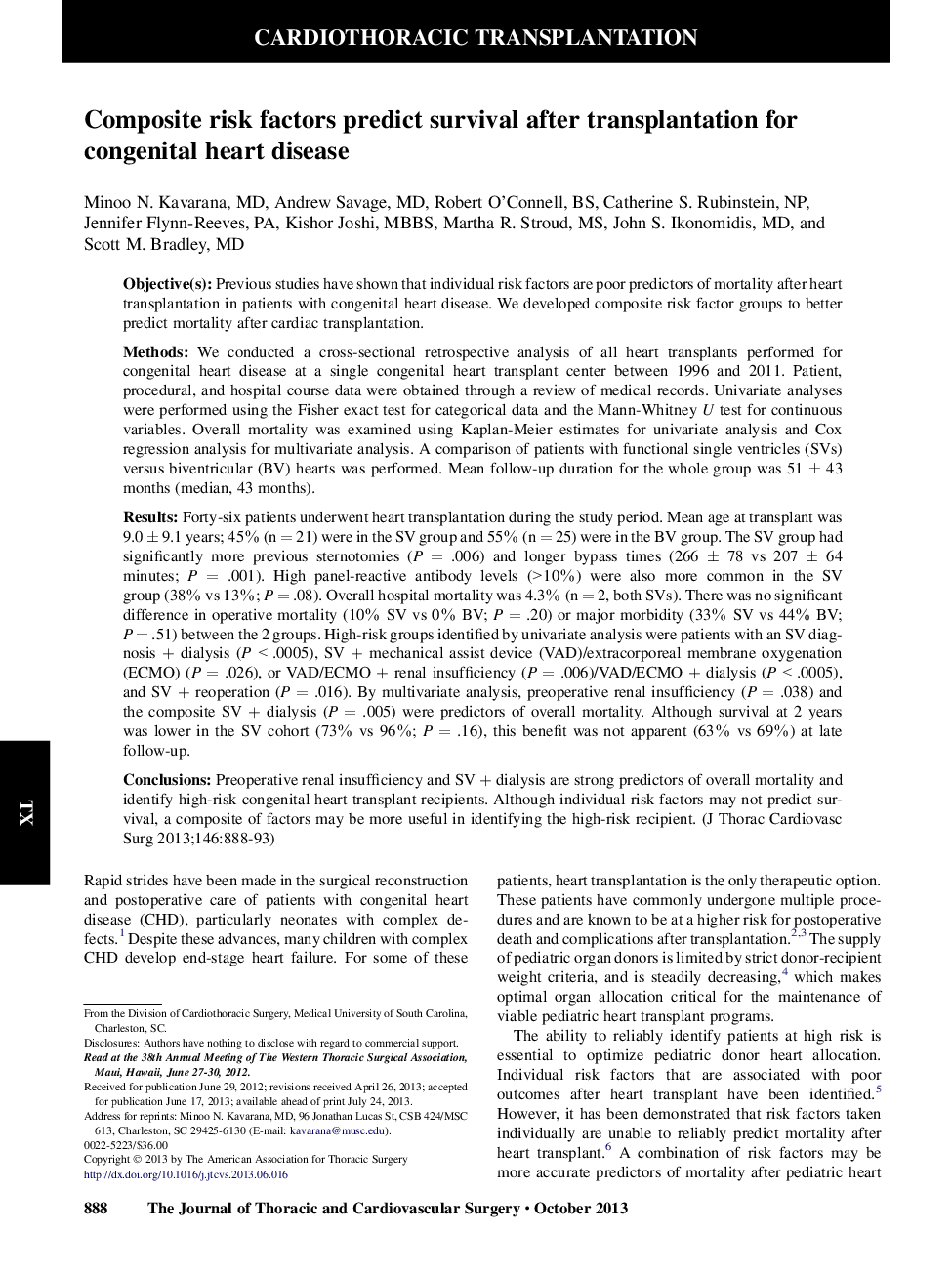| کد مقاله | کد نشریه | سال انتشار | مقاله انگلیسی | نسخه تمام متن |
|---|---|---|---|---|
| 2980296 | 1578618 | 2013 | 6 صفحه PDF | دانلود رایگان |

Objective(s)Previous studies have shown that individual risk factors are poor predictors of mortality after heart transplantation in patients with congenital heart disease. We developed composite risk factor groups to better predict mortality after cardiac transplantation.MethodsWe conducted a cross-sectional retrospective analysis of all heart transplants performed for congenital heart disease at a single congenital heart transplant center between 1996 and 2011. Patient, procedural, and hospital course data were obtained through a review of medical records. Univariate analyses were performed using the Fisher exact test for categorical data and the Mann-Whitney U test for continuous variables. Overall mortality was examined using Kaplan-Meier estimates for univariate analysis and Cox regression analysis for multivariate analysis. A comparison of patients with functional single ventricles (SVs) versus biventricular (BV) hearts was performed. Mean follow-up duration for the whole group was 51 ± 43 months (median, 43 months).ResultsForty-six patients underwent heart transplantation during the study period. Mean age at transplant was 9.0 ± 9.1 years; 45% (n = 21) were in the SV group and 55% (n = 25) were in the BV group. The SV group had significantly more previous sternotomies (P = .006) and longer bypass times (266 ± 78 vs 207 ± 64 minutes; P = .001). High panel-reactive antibody levels (>10%) were also more common in the SV group (38% vs 13%; P = .08). Overall hospital mortality was 4.3% (n = 2, both SVs). There was no significant difference in operative mortality (10% SV vs 0% BV; P = .20) or major morbidity (33% SV vs 44% BV; P = .51) between the 2 groups. High-risk groups identified by univariate analysis were patients with an SV diagnosis + dialysis (P < .0005), SV + mechanical assist device (VAD)/extracorporeal membrane oxygenation (ECMO) (P = .026), or VAD/ECMO + renal insufficiency (P = .006)/VAD/ECMO + dialysis (P < .0005), and SV + reoperation (P = .016). By multivariate analysis, preoperative renal insufficiency (P = .038) and the composite SV + dialysis (P = .005) were predictors of overall mortality. Although survival at 2 years was lower in the SV cohort (73% vs 96%; P = .16), this benefit was not apparent (63% vs 69%) at late follow-up.ConclusionsPreoperative renal insufficiency and SV + dialysis are strong predictors of overall mortality and identify high-risk congenital heart transplant recipients. Although individual risk factors may not predict survival, a composite of factors may be more useful in identifying the high-risk recipient.
Journal: The Journal of Thoracic and Cardiovascular Surgery - Volume 146, Issue 4, October 2013, Pages 888–893